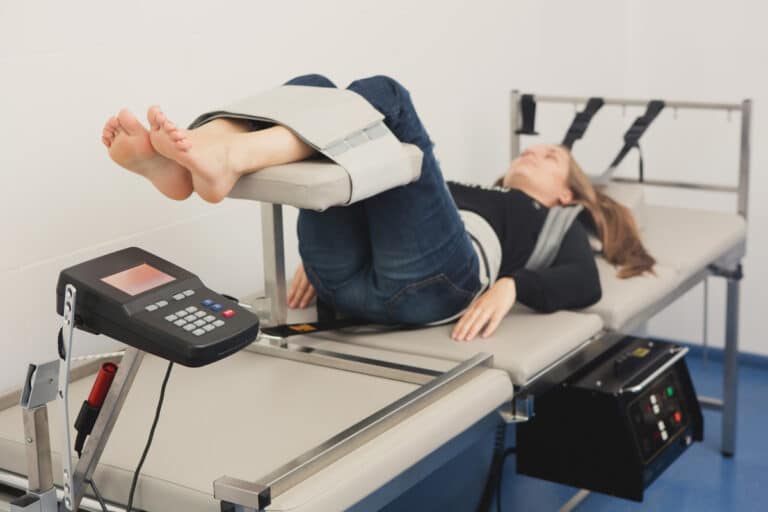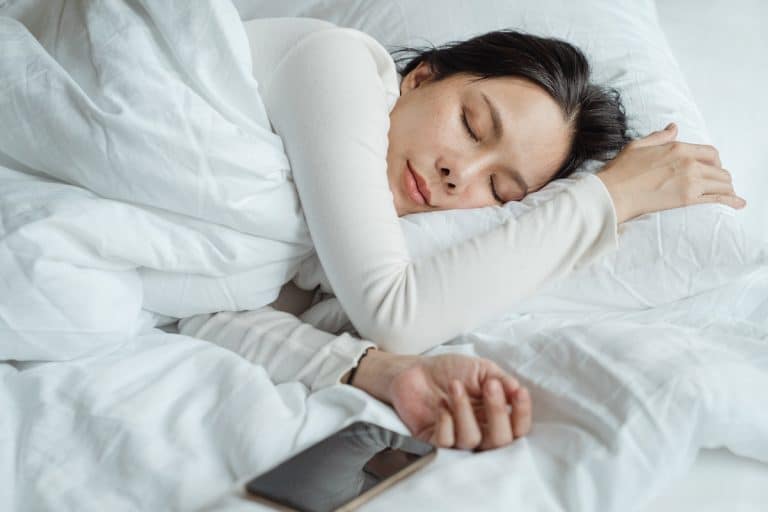Sleep is one of the most important factors to keep your mental health in tip-top shape. An adequate amount of sleep has been proven to benefit your mental health and can improve your performance at work. But did you know that a lack of sleep can lead to a mental disorder or it can create a negative impact on your mental health? Read on to discover more about sleep loss and how it affects your mental health. We will cover below how sleep affects the wellbeing of a person.
In This Article
What Role Does Sleep Play in Mental Health?
We often think of sleep as a way to replenish physical energy. But what you might not know is that sleep plays a very important role in preserving and maintaining your mental health. Mental health is an integral part of the human experience. A crucial aspect of achieving mental wellness is maintaining a healthy sleep schedule — and to that effect, sleep loss hinders efficiency and productivity. Sleep deprivation has been shown to reduce self-control, decrease emotional stability and clarity of thought, and lead to negative emotions.
Impact of Sleep Loss on Mental Health
Sleep allows our minds and bodies to rejuvenate, but it also plays an important role in learning and memory. On the other hand, lack of sleep is associated with mental disorders and much more. Here are the different effects of sleep loss on your mental health:
Depression
Sleep and depression have a complex relationship. While depression can be triggered by external factors, such as trauma or loss, it is the result of a combination of biological and environmental factors. One of these factors is sleep deprivation. When you don’t get enough sleep, your body doesn’t produce the right amount of hormones, and your mind can’t function properly. Without enough sleep to rejuvenate the brain and mind, your mood will be lower, and you’ll become more at risk for developing depression.
Stress
If you’re not getting a good night’s sleep, your mental health takes a hit. An unhealthy sleep schedule can leave you dreading your bedtime and counting down the minutes until morning. Sleep deprivation itself can become stress-inducing and a perpetuating factor in your stress cycle. Moreover, when your body doesn’t have enough time to recuperate from the day’s activities, you might find yourself more irritable, anxious than usual, or might deal with a mental disorder.
Seasonal Affective Disorder
Sleep deprivation and seasonal affective disorder have a strong correlation. It takes place during times of the year with reduced daylight hours. It is also caused by a lack of sleep. In other words, we can say people with seasonal depression are likely to suffer from sleep loss, and people suffering from insomnia are likely to develop depression. It has been shown that persons with SAD have a biological shift in their internal clocks and rhythms. It should be no surprise that SAD is worsened by reduced exposure to light.
Anxiety
Many people with anxiety symptoms have trouble sleeping and don’t understand how their sleep problems could be affecting their anxiety. Just like sleep and depression, there is an observable link between insomnia and anxiety disorders. There is a consistent pattern of observational studies and experimental research that highlights the role of sleep problems as an independent risk factor for increased anxiety symptoms.
Bipolar Disorder
Sleep deprivation is a common trigger for mood swings in people with bipolar disorder. Sleep patterns in patients with bipolar disorder vary greatly depending on their mental state. In bipolar disorder, during manic episodes, people are very active and have trouble sleeping. During depressive episodes, people can have problems sleeping as well. They may become anxious or worried about their condition, and this keeps them awake or causes them to wake up frequently.
Schizophrenia
Schizophrenia is a mental disorder characterized by abnormal social behavior and failure to recognize reality. It is a serious mental disorder that has a lot of causes. One of the triggers is being sleep-deprived. Plus, Insomnia and sleep disturbances are common symptoms of schizophrenia, as is circadian rhythm disturbance. According to studies, sleep disturbances that occur in schizophrenia have been found to contribute to symptom severity.
How to Improve Mental Health and Sleeping Patterns?
If you’re feeling stressed, or are having trouble sleeping, you may be wondering how to improve sleeping patterns and treatment of mental health. Both of these can be helped with certain lifestyle changes and the correct mindset. Let’s take a look at some of the good ways to deal with issues like sleep and depression:
Seeking therapy
Seeking mental health therapy is the initial step in taking the problem of mental health more seriously. Therapy can help you find ways to manage the symptoms of mental disorders as well as understand the origins of your mental health problem.
Maintain sleeping routine
A good sleeping pattern helps you not only feel better and keeps the mind relaxed but also gives your health a boost. If you are suffering from sleep deprivation, try to create a routine so your mind and body get back into stable sleeping habits.
Reduce Caffeine
Have you ever been told to reduce your intake of coffee and energy drinks? It is well known that too much caffeine can lead to health problems, especially sleeping difficulties and depression. Thus, you must avoid taking too much caffeine to improve your overall health and mood.
Maximize comfort while sleeping
Make sure you are most comfortable in your bed. For this, you can try the best mattresses to provide you proper support and comfort. It is recommended to choose the best mattress that includes important variables such as comfort, durability, price, and support.
Use technology to get better sleep
There are many sleep technology devices that can aid in getting the most comfortable sleep at night. With the help of wearable technology and smart tracking apps, it’s now possible to improve your night’s rest. Many sleep tracking devices can harness the power of technology to measure your sleep, and even wake you up in the morning.
Conclusion:
Sleep is vital for our overall health and well-being, but sleep loss can deeply damage the ability of your brain to process positive memories. Not getting enough sleep affects every aspect of your life: it decreases your attention and productivity, reduces your ability to focus, makes you more irritable with everybody around. A lack of sleep can make it harder for your brain to retain optimist thoughts and might lead to mental disorder, so if you’re cutting into your sleeping hours, try to keep in mind that even a single night without quality shut-eye can have far-reaching consequences.











